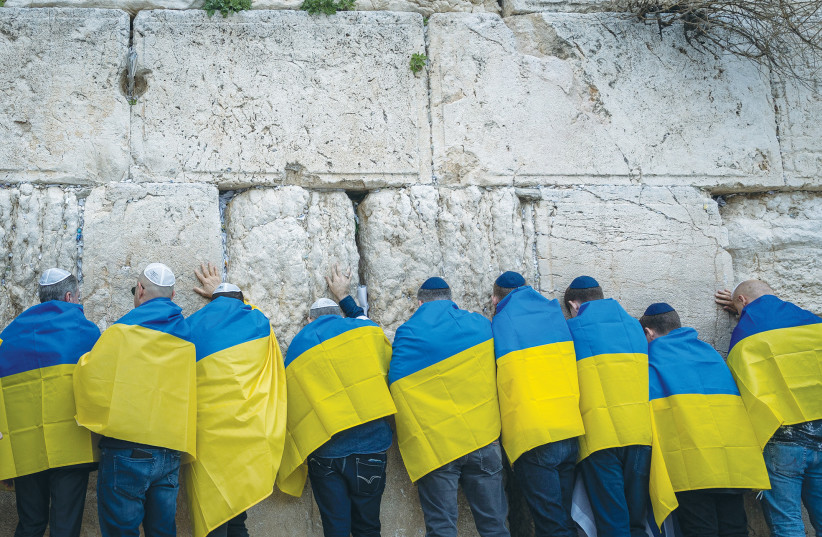Jews who travel to Uman in Ukraine to pray at the grave of Rabbi Nachman of Breslov on Rosh Hashanah will be risking their lives, Ukrainian Ambassador to Israel Yevgen Korniychuk said Monday.
“Rosh Hashanah is coming, and no matter what we say, Orthodox Jews will try to get to Uman again,” he said in an interview from his Tel Aviv office. “We understand your willingness to go to Uman and favor your support for Ukraine, but this is not the right time. We cannot guarantee your security.”
Last year, more than 30,000 Breslov Hassidim went to Uman – mostly from Israel but also from the US, the UK and France – and a similarly large gathering this year would attract attention from the Russian Army, which could attack the pilgrimage site, Korniychuk said.
“We understand your willingness to go to Uman and favor your support for Ukraine, but this is not the right time. We cannot guarantee your security.”
Ukrainian Ambassador to Israel Yevgen Korniychuk
“Imagine if Russia shells them – what would happen?” he asked.
The ambassador said he has tried to speak with influential rabbis in Israel so that pilgrims do not fly to Ukraine. Kyiv is willing to close its borders to religious tourists, he added.

“We want the Israeli government to intervene together with the Ukrainian government to prevent the massive killing of people that could happen,” Korniychuk said.
“We wish for them to pray for Ukraine in Israel, in their own homes,” he said. “We hope their prayers will be strong enough to stop this war before Rosh Hashanah, but we’re not sure it will happen.”
The Ukrainian ambassador's other statements
Korniychuk, who returned from a visit to Kyiv on Sunday, also said Ukraine’s request for a $500 million loan from Israel still stands, nearly three months after it was made to then-prime minister Naftali Bennett. Israel never responded, he said.
“Our economy is in a deep crisis and has declined up to 40%,” Korniychuk said. “Despite sanctions, Russia has much bigger reserves, and the prediction is that their economy will only drop by 10% by the end of the year.”
Some 30 countries, including Japan and much of Europe, have provided loans thus far.
One of Ukraine’s biggest economic concerns is that it will not have the resources to heat homes in the winter, and civilians will freeze to death, the ambassador said.
“This is a really sensitive issue for us,” he said. “With our current amount and quality of weapons, it will be difficult to hold an offensive counterattack by the armed forces.... That is why our political leadership is asking our international partners to help us finalize the military campaign before the winter starts. Otherwise, we may find ourselves in an even bigger crisis.”
Ukraine is still seeking more weapons from supportive countries, although “this is not related to Israel directly,” Korniychuk said, adding that he understands Israel’s concerns about Russia’s military presence in Syria and for the Jewish population in Russia.
However, he criticized Israel for not sanctioning Moscow, calling on it “to follow the US and the rest of the West that you rely on and work with in order to be strong and to defend your own interests.”
“I understand the argument that Israel does not have a sanctions law, but I was a member of parliament in Ukraine twice,” he said. “If you want a sanctions law, I can draft it for you.”
Korniychuk has approached Israeli businesses and asked them to close operations in Russia “because they are indirectly helping Russia kill Ukrainian women and children.”
He is also working with Israeli hospitals and NGOs to help fit wounded Ukrainians with prosthetic limbs, an area in which the Israeli medical system is known to have special expertise.
“We’re grateful for every little bit of help, including to MASHAV [Hebrew acronym for the Agency for International Development Cooperation in the Foreign Ministry], which spent 80% of its budget this year on Ukraine,” Korniychuk said.
